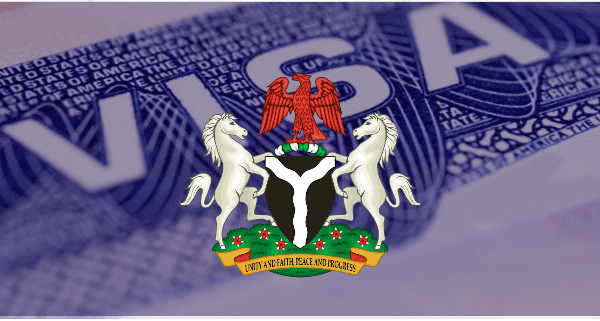Breaking News
Nigeria Vows Reciprocal Action as U.S. Tightens Visa Rules
This development marks an expansion of a previous policy originally targeted at international students, requiring them to list their social media usernames and remove privacy settings to allow U.S. authorities full access for vetting purposes.

The Federal Government of Nigeria has pledged to implement reciprocal measures following the United States’ latest visa requirements, which mandate Nigerian applicants to disclose detailed information about their social media activity and personal digital footprint over the last five years.
In a statement posted on its official X (formerly Twitter) handle, the U.S. Mission in Nigeria warned that failure to fully comply with the new rules may lead to visa denial or even future ineligibility to enter the United States.
“Omitting social media information on your application could lead to visa denial and ineligibility for future U.S. visas,” the Mission cautioned.
U.S. Expands Surveillance of Visa Applicants
This development marks an expansion of a previous policy originally targeted at international students, requiring them to list their social media usernames and remove privacy settings to allow U.S. authorities full access for vetting purposes.
According to the U.S. Mission, all visa applicants are now expected to provide:
- Usernames, email addresses, and phone numbers used in the past five years
- Information across all online platforms, apps, and websites they’ve interacted with
- Identifiers like handles, screen names, or any aliases used
Applicants must include this data in their DS-160 visa application forms and certify its accuracy. Those using multiple accounts or platforms must report each one, regardless of privacy settings.
The policy, a product of the Trump administration’s intensified immigration control efforts, is part of broader national security strategies.
U.S. Tightens Naturalisation and Visa Oversight
In a related move, the U.S. Citizenship and Immigration Services (USCIS) has introduced a stricter interpretation of the “Good Moral Character” requirement for naturalisation. Under the new guidelines, immigration officers are instructed to assess applicants beyond criminal records and evaluate overall lifestyle, societal contributions, and adherence to American community norms—such as paying taxes, holding legal employment, and community involvement.
Meanwhile, the U.S. State Department has revoked over 6,000 student visas within the past seven months. According to officials, many of these revocations stemmed from violations such as assault, DUI, burglary, and alleged support for terrorism. Secretary of State Marco Rubio has openly supported the crackdown, stating:
“Every time I find one of these lunatics, I take away their visas.”
Rubio’s approach has especially targeted students from China and those involved in pro-Palestinian protests, sparking backlash and legal challenges. Two high-profile cases involving Mahmoud Khalil and Rumeysa Ozturk—both detained and later released by court orders—have drawn attention to the administration’s aggressive immigration policies.
Nigeria’s Response: Visa Reciprocity in Motion
Reacting to the U.S. policy, the spokesperson for Nigeria’s Ministry of Foreign Affairs, Kimiebi Ebienfa, confirmed that the government was notified in advance and would respond with reciprocal measures for American citizens applying for Nigerian visas.
“On things of this nature, the best we can do is to carry out reciprocal action,” Ebienfa said. “What you are mandating our nationals to do, we will also mandate your citizens applying for our visa to do.”
Ebienfa further disclosed that an inter-agency meeting involving the Ministry of Foreign Affairs, Ministry of Interior, and the National Intelligence Agency (NIA) would be convened to formulate Nigeria’s official response.
“The stakeholders that are involved will have a meeting and agree on our best way to respond to it holistically,” he added.
A Pattern of U.S. Visa Restrictions on Nigerians
The U.S. has recently implemented a series of visa restrictions targeting Nigerians. These include:
- Limiting non-diplomatic visas to single entry with just a three-month validity
- Increased visa denial based on overstay risks
- Threats of permanent re-entry bans for violators
According to the U.S. Mission, these steps align with a global “visa reciprocity process” and are aimed at protecting the integrity of the American immigration system.
As both nations navigate the diplomatic fallout, the escalating visa tension underscores a larger shift in U.S. immigration policy—one that Nigeria, like many other countries, is now preparing to confront head-on.










